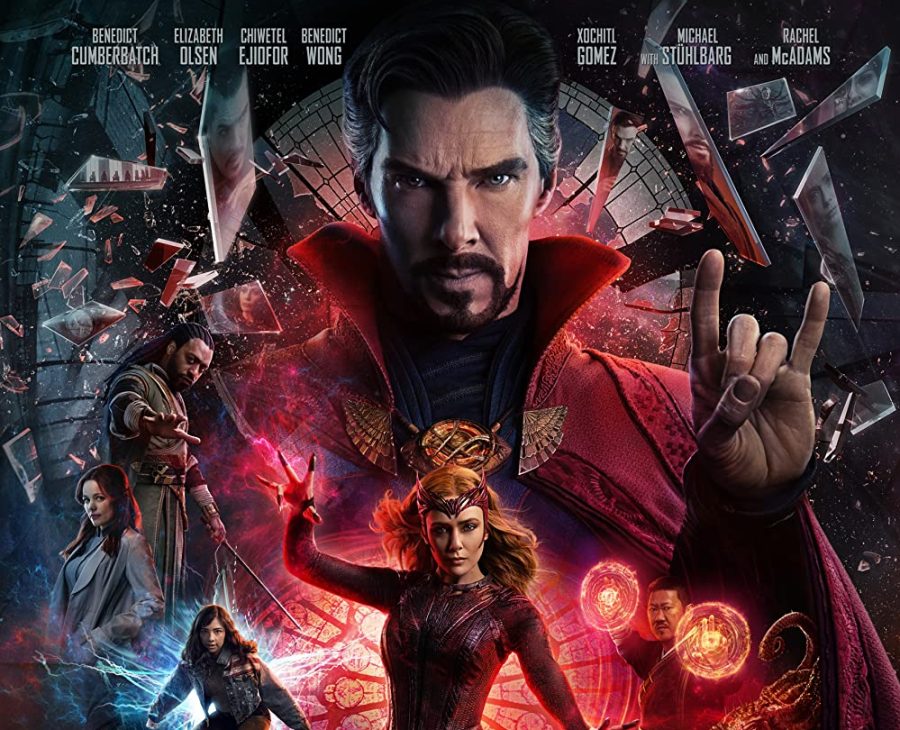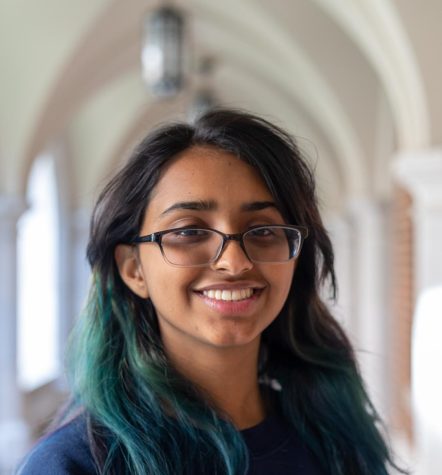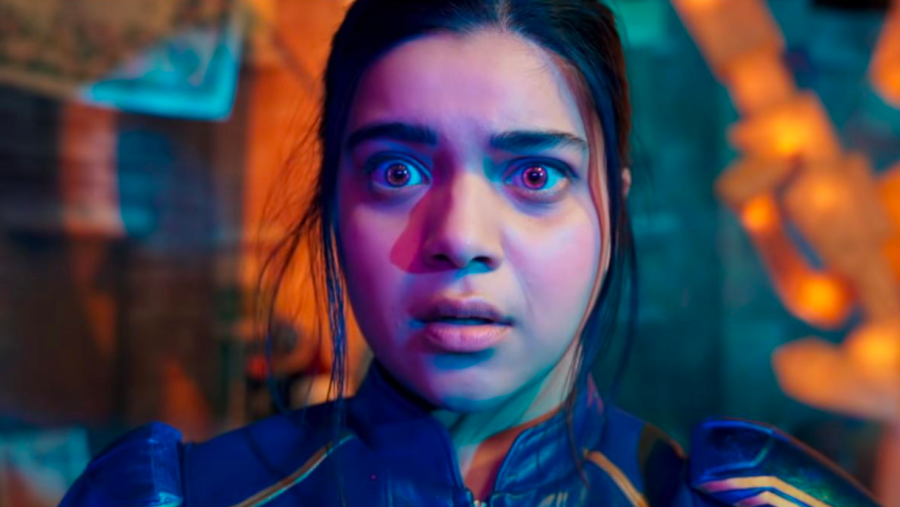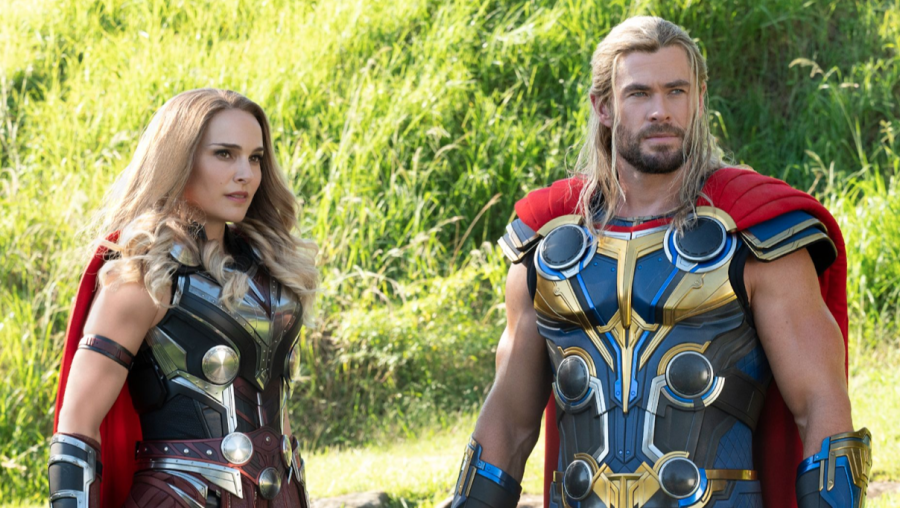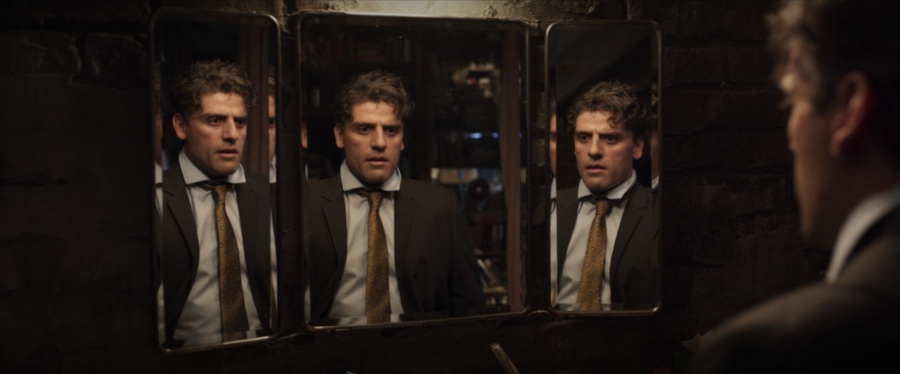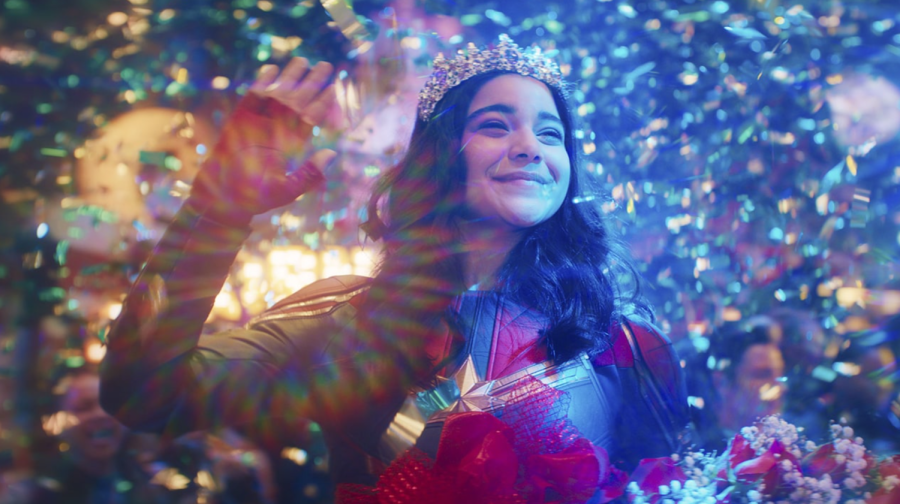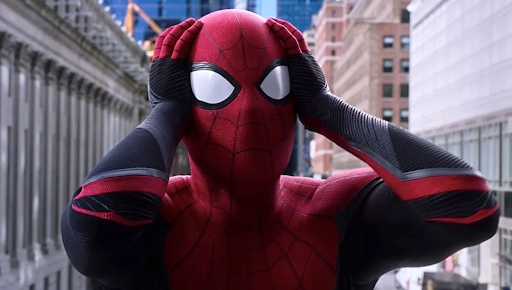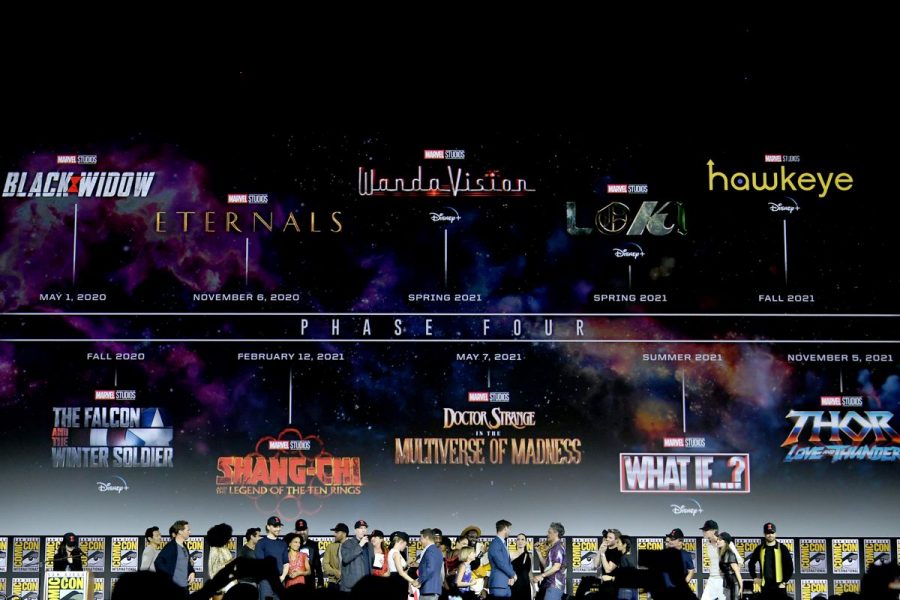Heads up everyone: The Marvel Cinematic Universe (MCU) just got stranger. That’s right, the newest Marvel box office hit–“Doctor Strange in the Multiverse of Madness” (MoM)–has just altered the state of our beloved film industry and universe forevermore.
Let’s start off with a brief plot summary. Spoilers ahead, you have been warned.
The movie revolves around America Chavez, a young supernatural being who has a unique power to travel the Multiverse. The Scarlet Witch, Wanda Maximoff‘s over-dominating alter ego, pursues America in hopes of stealing her power so that she can travel to a multiverse where her children are still alive. Dr. Strange utilizes his full might to prevent Wanda from acquiring such a powerful ability and travels the Multiverse with America to find The Dark Hold, a book that holds the secret to stopping Wanda. The movie ends with Wanda’s whereabouts unknown, hinting at her death, the destruction of the dark hold that powers Wanda and foreshadowing for future Marvel films.
The horror elements strongly incorporated in the filmmaking process were most interesting. Unlike other Marvel films, MoM does not shield its viewers from the grotesque nature of fights and death scenes. The Scarlet Witch embodies her destiny to rule or destroy the world and has no problem with slaughtering anybody and everybody standing in her way, claiming herself not to be the monster that the mirror reflects back to her. The movie’s bloody fights and creepy scenes only add to the anxiety-inducing nature that sets the audience at the edge of their seats from the very first scene. Not only did the movie take an emotional toll on its viewers but also on the characters within the movie.
After the events of “WandaVision,” Marvel fans everywhere were dying (too soon for this pun?) to see Wanda’s evolution. Only, she’s not really Wanda anymore. The young, misguided avenger that we saw in “Avengers: Age of Ultron” and later in “Civil War” is no longer the woman who graces the screen in MoM. Wanda is fully consumed by pain and stops at nothing to be reunited with her children in the movie, even killing her multiversal counterparts to be with them.
The grief and pain she endures, however, make Wanda so relatable to audiences everywhere who have experienced a similar kind of loss. But Wanda is not the only character in the Marvel universe to have experienced such loss. Captain America lost his entire family, friends and the love of his life when he was frozen in the ice. Tony Stark’s parents were murdered when he was young. Even Tom Holland’s Spider-Man has lost everyone and everything he cares about. Yet, these three men remain in the Hall of Fame of Marvel superheroes. So, how can Wanda Maximoff’s fall from heroism be explained?
Every die-hard Marvel fan is aware of the historic and very influential phrase that frequently appears during the various iterations of the Spider-Man films: with great power comes great responsibility. As stated in “WandaVision” and hinted in “Multiverse of Madness,” the Scarlet Witch’s power of chaos magic exceeds that of the sorcerer supreme. Importantly, this places Wanda in a position that no other Marvel character has had: absolute power. As Agatha Harkness said to Wanda in Wandavision, “you have no idea how dangerous you are. You’re supposed to be a myth. A being capable of spontaneous creation, and here you are, using it to make breakfast for dinner.” We are yet to fully understand just how powerful Wanda can be.
While Wanda’s power may not be perfect, she is destined to either destroy or rule the world. This prophecy makes her grief highly dangerous and gives her a strong weapon to wield in light of it. While other Marvel characters have experienced loss, Wanda has truly no other reason to live except for her children anymore. As she stated in the movie, the only reason she wants America is to see her children again—she’s not interested in fulfilling her destiny. When she finally realizes that she is the monstrosity of destiny by witnessing the fear in her son’s eyes as she brutally fights her multiversal counterpart, she loses her final reason to try anymore.
Destroying the dark hold revealed that there is still light left in her, however shrouded in sadness it may be. After all, “what is grief if not love persevering?” Perhaps Vision’s words will enlighten her once again as they did in their iconic TV show. We have yet to see what happened to White Vision at the end of “WandaVision;” maybe he will reunite with Wanda after all.
Now, we get to the doctor himself, Stephen Strange. One line stood out to me throughout the movie: “In our experience, the greatest threat to the multiverse is Dr. Strange.” Though the main threat of this movie was the Scarlet Witch, her character does not seem to be problematic in every universe according to her portrayal on Earth 838.
Dr. Strange causes the destruction of some characters via an incursion, revealing the many sides of his personality. Each Strange is but a part of the doctor, and each Strange is capable of terrible destruction. As I watched the movie, the same questions came to mind: What makes our Dr. Strange different? Why is our Dr. Strange not like the others as America says?
The answer lies within Strange’s interactions. “Multiverse of Madness” takes place after the events of “Spider-Man: No Way Home,” where he formed a bond with Tom Holland’s Peter Parker before Strange forgot him forever. However, Spider-Man showed Strange that the villains who caused so many deaths in other universes were worthy of being saved from their own demons. In doing so, he enlightened Strange on the importance of compassion.
Furthermore, after witnessing the terrible things of which he was capable in other universes, Dr. Strange realized he wanted to be better. This realization is why our Dr. Strange refused to take America’s power and kill her, while other Stranges would not have hesitated to snag “the grand calculus of the universe.” This decision is probably also motivated by losing his sister at a young age and wanting to save America because he could not save his sister. Our Dr. Strange understands the value of compassion and has grown in ways that others have not. Wanda could learn a thing or two from him.
The saddest part of the movie was learning that Dr. Strange does not belong with Dr. Christine Palmer in any universe. Seeing this must’ve been incredibly difficult for him to hear knowing that he lost his love many times in many different worlds. Dr. Strange’s unhappiness is emphasized throughout the movie, suggesting that perhaps love is the key to him finding true peace and happiness. With the cameo of Clea at the end of the film, who is written to marry Dr. Strange in the comics, maybe he’ll find a new love after all.
The events of “Doctor Strange in the Multiverse of Madness” triggered a lot of my emotions, a sentiment I’m sure other viewers shared. Witnessing our favorite Marvel characters turn violent and evil in their different iterations showed us just how little we know about the multiverse within Marvel and how it changes everything for the future. I love how there are no clear lines between hero and villain anymore; every character walks the fine line of being a savior or new evil. Even the Illuminati showed misjudgment. The title of hero is becoming harder and harder to dole out in the MCU, but only time will tell who truly deserves the mantle.











